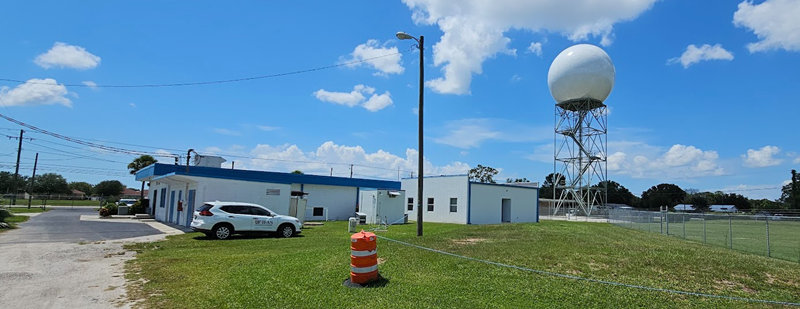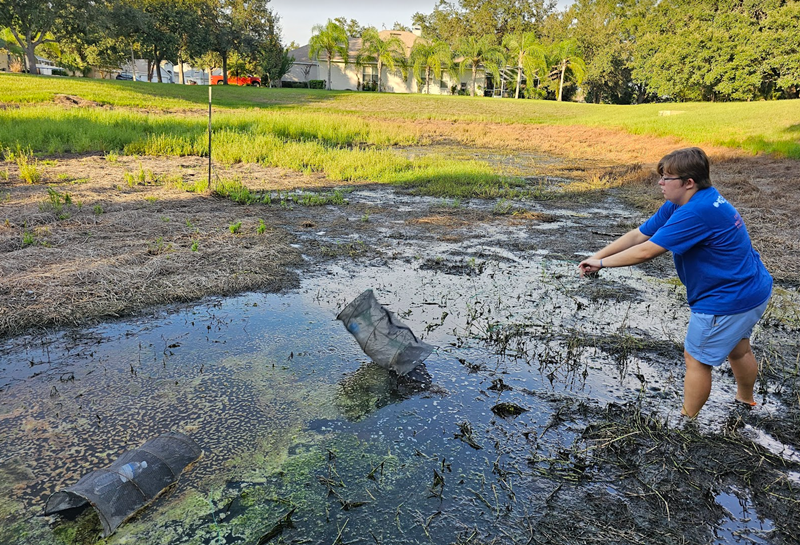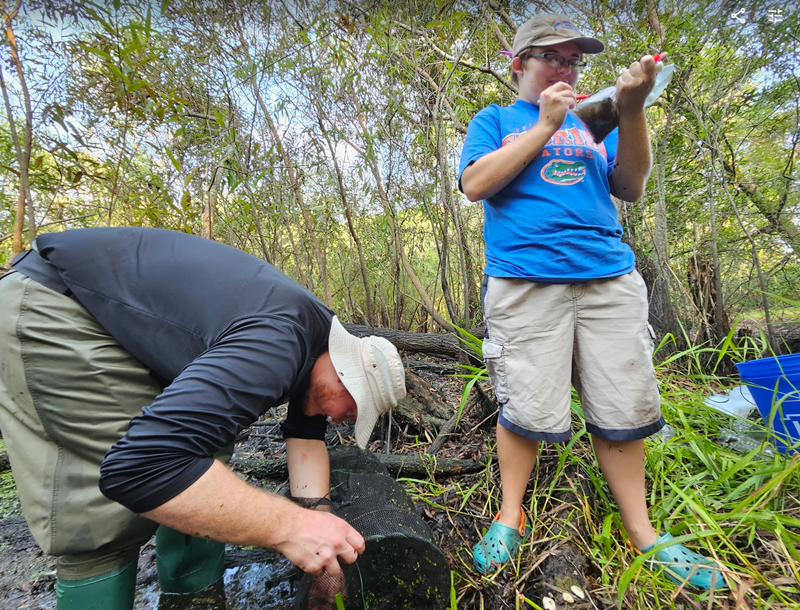Visiting the Tropical Aquaculture Lab in Ruskin FL
The news that there is an invasive population of Xenopus tropicalis in Florida is now well established. For a short time, workers at the Tropical Aquaculture Lab thought that they had a population of very small Xenopus laevis (Hill et al. 2017), but once the identification was rectified the remarkable invasion was a reality and quickly spreading across the region (Goodman et al. 2021). I put some special time aside in my schedule to visit the Katie Everett, Quenton Tuckett and Jeff Hill at the Tropical Aquaculture Lab.

Excitingly, Katie took me to the field to collect some X. tropicalis from one of the ponds in the area. Although we set traps in a lot of ponds, only one of them turned up any of the frogs, but we did capture over 50!

It was a great to see this invasive species together with so many other herps in Florida. Katie and assistant Myles were very helpful when it came to emptying all of the many traps that we saturated the pond with.

Now that I've seen an invasive population of these animals, I'm really looking forward to seeing them in their native range. I feel sure that they occur in very similar habitats in their native Gabon. Stay tuned for reports on our visit to Gabon!
Further Reading
Hill, J.E., Lawson, K.M. and Tuckett, Q.M., 2017. First record of a reproducing population of the African clawed frog Xenopus laevis Daudin, 1802 in Florida (USA). BioInvasions Record, 6(1).
Goodman, C.M., Jongsma, G.F., Hill, J.E., Stanley, E.L., Tuckett, Q.M., Blackburn, D.C. and Romagosa, C.M., 2021. A case of mistaken identity: Genetic and anatomical evidence reveals the cryptic invasion of Xenopus tropicalis in central Florida. Journal of Herpetology, 55(1), pp.62-69.
